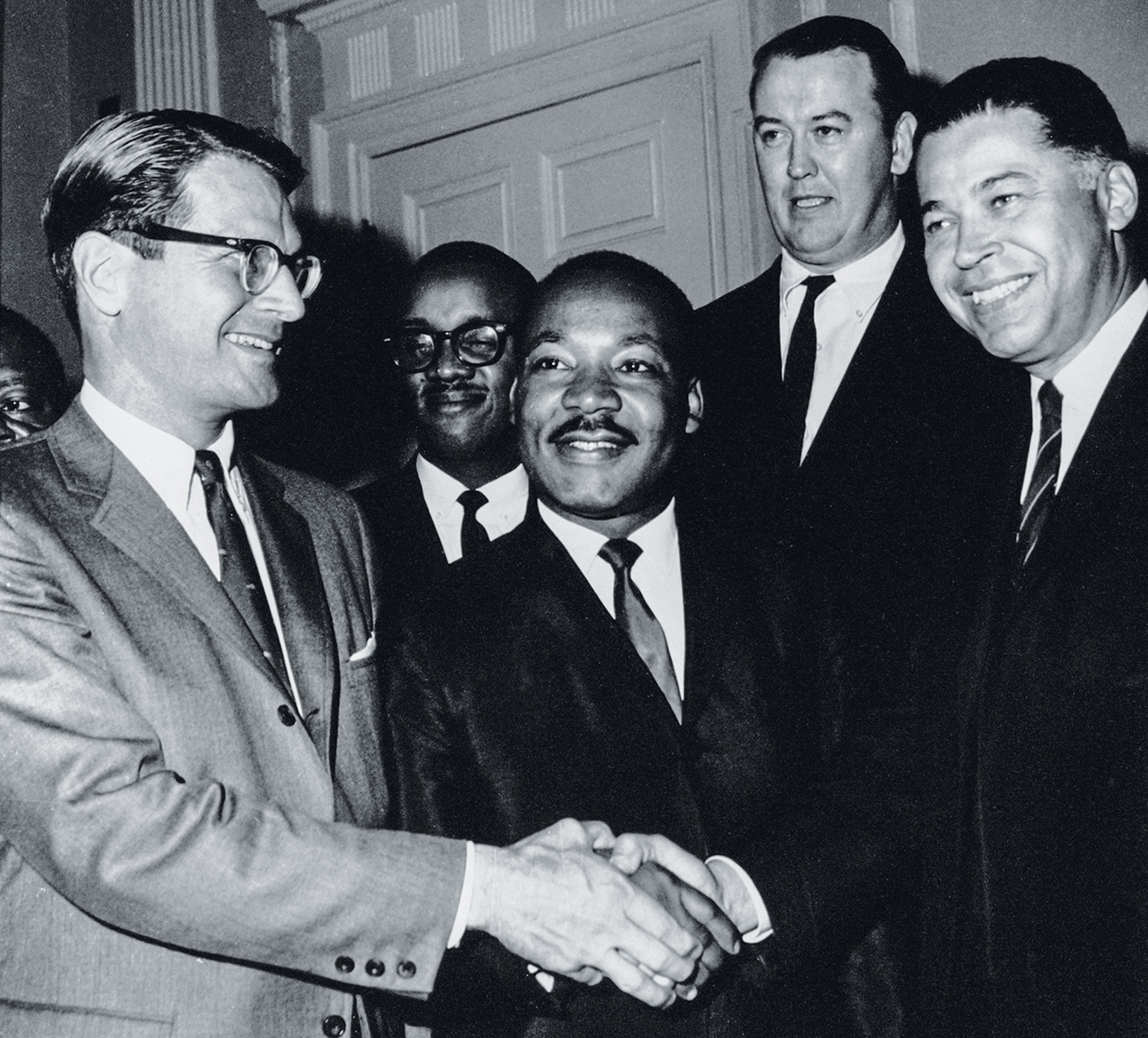Remembering Edward Brooke

Martin Luther King Jr. meets with Massachusetts Republicans Elliot Richardson (far left) and Edward Brooke (far right) at the State House. Brooke was the first popularly elected African-American U.S. senator. (From the Edward Brooke Collection at the Howard Gotlieb Archival Research Center, Boston University)
Edward was an officer [during World War II] when he met two guys from Boston: Clarence Elam and Al Brothers. I think they saw he had what was lacking at the moment among blacks. We were not sophisticated about politics—to think you could be an important man in politics didn’t exist for us. I don’t think Edward would have gone into politics if he hadn’t gone to war. But he came here and started at Boston University School of Law and went into politics from there. And at that time I saw what he was doing and what it meant to the people in Roxbury.
Martin Luther King was just emerging. I was glad he was happening, but I guess I was looking more locally at Boston after busing. Edward got immersed in the ramifications of Roxbury, which was very exciting in those days. He was an inspiration to the community, but it was gradual—he wasn’t a chirpy church person.
Boston was good to him, and Edward was good to Boston. He was a symbol. He didn’t show his anger and he didn’t back down, but he knew how to negotiate. He had friends on many sides, and that was true of him from childhood. And he was a good-looking man, but that was the least of his talents. It was his manner and intellect. If there were more people with his temperament, the country and the city would be in a better state.”
—Adelaide Cromwell, cofounder of Boston University’s African Studies and African American Studies departments, reflecting on her cousin and longtime friend, who passed away in January at the age of 95.


